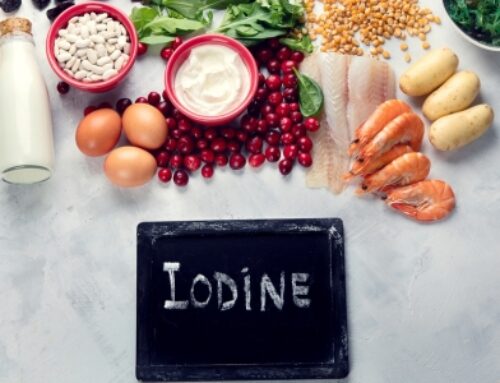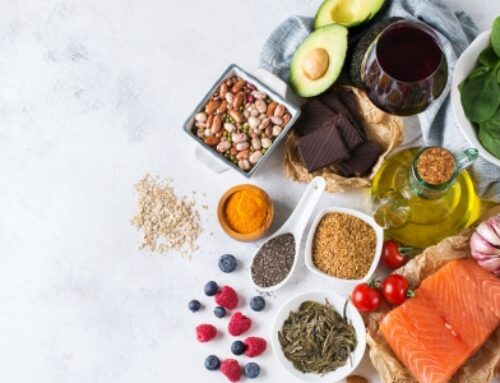
1 in 6 Australian couples have fertility troubles.
According to research, nutrition is vital for promoting fertility and reproductive health in both males and females. And it’s never too early to start thinking about preconception nutrition, considering approximately 4 out of 10 pregnancies are unplanned. Unplanned pregnancies have been associated with greater risk of adverse outcomes. This is largely due to to the fact that by the time you find out you’re pregnant, the foetus has already started to develop! Most organs begin to develop 3-7 weeks after a mother’s last menstrual cycle. This is why it’s important to be prepared and aware of preconception nutrition!
The more researchers investigate the impact of maternal health and nutrition in children, the more we’re realising how important preconception nutrition actually is. Preconception nutrition is mostly about healthy eating and living – so ensure your diet is full of whole foods rich in vitamins and minerals. The only difference is awareness. During this time, being more aware of certain nutrients that can influence your pregnancy is important.
So to answer questions including ‘what nutrients do I need to pay attention to?’, here are my practical tips on preconception nutrition:
Special Nutrients
Folate/Folic Acid
Folate recommendations pre-pregnancy: 400mcg/d
Folate, or its synthetic form folic acid, is a water soluble B-complex vitamin. It has a role in many bodily functions and is extremely important during the early stages of pregnancy. Folic acid is one of the most well-known preconception vitamins, due to its role in the prevention of neural tube defects (NTDs) such as Spina Bifida. The neural tube closes by day 28 of gestation; this occurs usually before most women know that they’re pregnant. Talking to your doctor about supplementation is a must to reduce the potential of NTDs and to promote a healthy pregnancy. In addition to a supplement, introducing foods naturally rich in folate will add that extra level of protection. You can start by adding legumes, green leafy vegetables, citrus fruits, and fortified breads and cereals into your diet.
Iron
Iron recommendations pre-pregnancy: 18mg/day; pregnancy: 27mg/day
Iron is a vital mineral needed during pregnancy. It plays an important role in: foetal growth and development, carrying oxygen in the blood, and foetal neurodevelopment. It is also one of the most common nutrition deficiencies within women of child bearing age! Ensuring adequate preconception iron status is important because:
- Pregnancy places an even higher demand for iron as both maternal and foetal needs need to be met;
- During the last 3 months of pregnancy, the foetus is accumulating its own iron stores from maternal stores;
- Foetal iron stores are meant to last for 6 months until solid food can be introduced; and
- Iron deficiency during early childhood has been associated with impaired memory function and attention disorders.
Investigating your iron status by a quick blood test is a good first step if you are thinking of conceiving. If you are unsure how to increase your iron intake (especially if you follow a vegan or vegetarian diet), contact your dietitian to help guide you through some practical food swaps. Rich sources of iron you can incorporate into your diet include meats, poultry, and legumes.
Iodine
Iodine recommendations pre-pregnancy: 150mcg/d
Iodine is also another important nutrient to consider. Ensuring preconception iodine consumption will support:
- Appropriate thyroid function (and thyroid hormone levels);
- Ovulation: low levels of thyroid hormones can lead to infertility by reducing ovulation;
- Foetal brain development: thyroid hormones are used to insulate nerves in the central nervous system. This development is most active from conception to approximately 20 weeks of gestation;
- Intelligence; and
- Protection against cretinism (which can come about in extreme cases of iodine deficiency).
Talking to your GP about your thyroid function if you are thinking about conceiving is a good first step. The simplest way to get some iodine into your diet is to use iodised salt. Iodine can also naturally be found in certain fruits and vegetables (if the soils they’re grown in are not depleted).
Summary of tips
There is so much nutrition advice out there! If you’re thinking about conceiving, most of this advice is based on what NOT to do. My advice would be to think about the steps you CAN do, and make them happen.
- Add more fruit and vegetables into your diet. They are rich sources of important vitamins and minerals (like folate, iron and calcium).
- See your doctor about a preconception multi-vitamin.
- Be positive. Surround yourself in a supportive environment!
- Start to adopt healthy lifestyle habits: limit those wild nights out, reduce (or stop) smoking and aim for more whole foods than sometimes foods in your diet.
If you’d like further help with your nutrition please click below:
References:
Gardiner, P.M, Nelson, L, Shellhaas, C.S, Dunlop, A.L, Long, R, Andrist, S & Jack, B.W, 2008, ‘The clinical content of preconception care: nutrition and dietary supplements’, American Journal of Obstetrics & Gynaecology, p:345-356
World Health Organisation. Preconception care to reduce maternal and childhood mortality and morbidity. 2012
Brown, L.S ‘Nutrition requirements during pregnancy’. Chapter 1.



